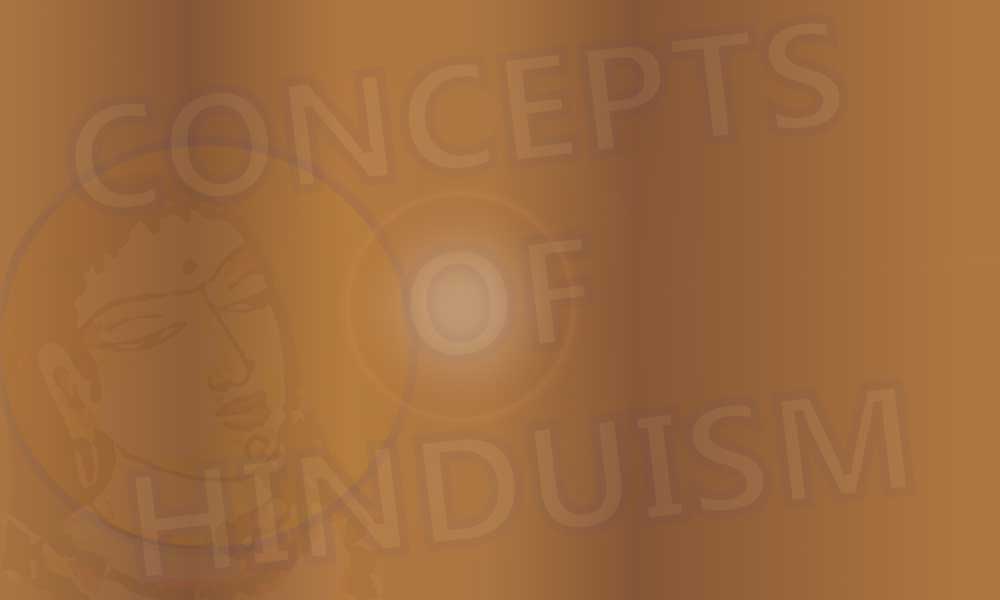
Adi, In the Beginning

Literally speaking in Sanskrit 'adi' means the first, the beginning, primitive, earliest, primary, and foremost. It is usually used as an adjective in conjunction with other words to denote similar meanings, and occasionally as noun to denote someone's name. For example, Indra, the king of the heavens is often described as adi-dev (first god), and Brahma, the creator god, as adi-kartha (first creator). The epic Ramayana is known as adi-kavya (the first among literary works). In modern literature, primitive or the earliest human beings are called adi manav.
The highest Brahman is described in the Upanishads as the First among all. He manifests in creation as adi-purusha, the first cosmic person or being. So also, the Mother Goddess is called adi-shakti, the primal force. She is the dynamic force of God who becomes activated upon his awakening and begins the creation. In the Puranas, Shiva and Parvathi are known as the first couple (adi damapatih).
Some of the derivative words of adi are adim (first man or Adam), aditi, the mother of gods and adityas, the solar deities. Adi is also the name of an asura or demon, who was the son of Andhaka. Andhaka, means he who is dark, ignorant or blind. He was the son of Diti and Kashyapa, the progenitor of mankind.
According to Kurma Purana, Andhaka tried to molest Parvathi, the consort of Siva and met his end in the hands of Siva. Later, his son Adi tried avenge the death of his father by killing Siva. But he knew that Siva was powerful and invincible. So he thought that if he could somehow gain invincibility, he would be able to achieve his goal. He performed severe austerities, with the sole purpose of seeking a boon from Brahma to make himself invincible.
For the demons spiritualism is a means to gain some personal goal. They do not seek salvation. Instead they always try to gain some powers to overpower the gods. Adi was no exception. When Brahma finally appeared before him, he was so excited that he was unable to express his desire clearly. This happened with the asuras on more than one occasion, as they were not habituated to speak fluently in Sanskrit, the language of the gods. Besides the tamas in their bodies makes their pronunciation indistinct. Brahma took advantage of the ambiguity in his words and granted him the boon, but with a twist that made him invincible only when he was in the form of a demon, not in any disguise.
Adi was unaware of this limitation. He thought he was ready to face Siva and kill him. Armed with the new power he got from Brahma, he went to Kailas, the abode of Siva in the guise of a snake. Since snakes were usually allowed to enter Kailash freely, he managed to enter into Kailash easily. But when he tried to enter into the presence of Siva in the guise of Parvathi, Siva recognized him was and killed him instantly.
Adi means the beginning. Antah means the end. Whatever that has these two characteristics is impermanent and subject to modifications. All creation has a beginning and end. Whatever that exists beyond them is Antah, the infinite, which is the essential nature of Brahman. He is indestructible and without a beginning and an end and without. Hence, he is known as anitya, eternal.
Suggestions for Further Reading
- Aditi, The Mother of Gods
- Adityas, the Solar Deities
- Ahamkar or egoism
- Durga, the Divine Mother
- Brahma, the Creator and First God of Hindu Trinity
- Guru Granth Sahib- Excerpts
- Asvins, the Twin Gods of Healing in the Vedas
- The Concept of Avatar or Incarnation in Hinduism
- The Concept of Chakras or Energy Centers Of The Human Body
- The Concept of Atman or Eternal Soul in Hinduism
- The Problem of Maya Or Illusion and How To Deal With It
- Belief In Atman, The Eternal Soul Or The Inner Self
- Brahman, The Highest God Of Hinduism
- The Bhagavad Gita Original Translations
- The Bhagavadgita, Philosophy and Concepts
- Bhakti yoga or the Yoga of Devotion
- Hinduism And The Evolution of Life And Consciousness
- Why to Study the Bhagavadgita Parts 1 to 4
- Origin, Definition and Introduction to Hinduism
- Symbolic Significance of Numbers in Hinduism
- The Belief of Reincarnation of Soul in Hinduism
- The True Meaning Of Renunciation According To Hinduism
- The Symbolic Significance of Puja Or Worship In Hinduism
- Introduction to the Upanishads of Hinduism
- Origin, Principles, Practice and Types of Yoga
- Essays On Dharma
- Esoteric Mystic Hinduism
- Introduction to Hinduism
- Hindu Way of Life
- Essays On Karma
- Hindu Rites and Rituals
- The Origin of The Sanskrit Language
- Symbolism in Hinduism
- Essays on The Upanishads
- Concepts of Hinduism
- Essays on Atman
- Hindu Festivals
- Spiritual Practice
- Right Living
- Yoga of Sorrow
- Happiness
- Mental Health
- Concepts of Buddhism
- General Essays